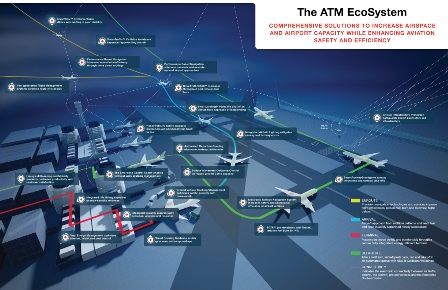EU regulation has fostered air traffic management modernisation, according to a new report from the European Court of Auditors. But EU funding of projects was largely unnecessary and its management was affected by shortcomings, say the auditors.
In 2005, the EU launched a programme known as SESAR to harmonise and modernise air traffic management (ATM) systems and procedures across Europe. These systems have traditionally been developed at a national level. Overall, the EU has committed €3.8 billion to SESAR between 2005 and 2020, of which €2.5 billion was earmarked to support the deployment of such systems and procedures.
 The auditors assessed how well the European Commission managed the deployment of SESAR and how it helped meet the objectives of the Single European Sky policy. They examined whether the EU’s intervention was designed to address existing and future needs and whether it added value to the management of air traffic in Europe.
The auditors assessed how well the European Commission managed the deployment of SESAR and how it helped meet the objectives of the Single European Sky policy. They examined whether the EU’s intervention was designed to address existing and future needs and whether it added value to the management of air traffic in Europe.
“With on average 30 000 flights per day, air traffic in Europe required a robust, harmonised and modern management system”, said George Pufan, the Member of the European Court of Auditors responsible for the report. “However, the benefits from EU money spent in deploying SESAR are far from clear.”
ATM modernisation benefits from regulation and coordination at EU level, the auditors acknowledge. SESAR’s concept of common projects promotes coordinated action and mitigates the “last mover advantage”, in which stakeholders tend to postpone their investments knowing that benefits will only arrive when all stakeholders are equipped with the new technology.
However, the first application – the Pilot Common Project – lacked adequate enforcement provisions and included functions which did not fulfil the necessary criteria for selection.
EU funding for ATM modernisation was largely unnecessary, as a majority of projects would have been financed without EU support. Other shortcomings in implementation reduced the effectiveness of EU funding. A substantial amount of funding was awarded without adequate prioritisation and consideration of effectiveness. In addition, the auditors note that not enough has been done to mitigate the potential risk of conflicts of interest resulting from the current funding mechanism, whereby some beneficiaries are involved in screening their own applications.
The auditors warn that, for some projects, implementation is not on track to meet the regulatory deadlines, with an increasing risk of delays. They also found a lack of measurement of results in an actual operational environment.
The auditors make several recommendations on how to achieve better results. In particular, they
ask the European Commission to:
• improve the focus of common projects and reinforce their effectiveness;
• review the EU’s financial support for modernising ATM;
• review and formalise the preparation and submission of applications for funding;
• ensure appropriate monitoring of performance benefits delivered by ATM modernisation;
The purpose of this press release is to convey the main messages of the European Court of Auditors’ special report. The full report is available at eca.europa.eu.